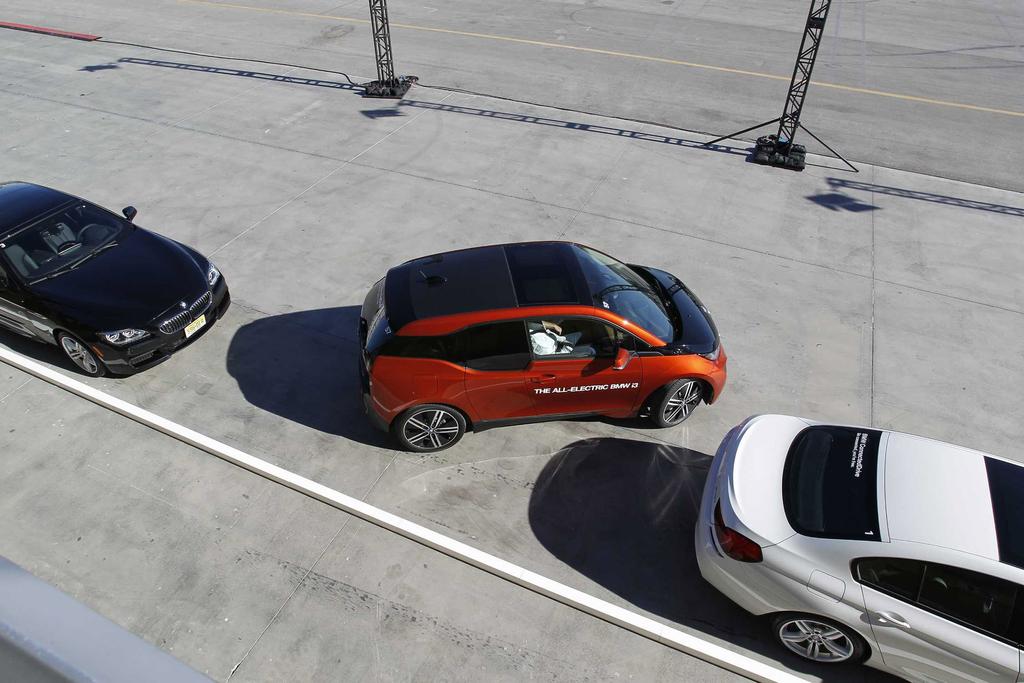
Picture this: You're 16 years old and taking your much-obsessed-over driver's test. You perform well enough on all the other test portions, but now it's time for that most-dreaded of skills evaluations — parallel parking. You carefully maneuver your car into position, bring the vehicle to a stop and ... engage the automatic parking function then sit back confident and relaxed as your car moves itself into place. Your instructor marks a perfect score.
Related: Poll: Motorists Still Wary of Self-Driving Cars
Who wouldn't want that? Welp, most people, it turns out. Like their persistent mistrust of driverless vehicles, Americans just can't seem to wrap their heads around a car that parks itself. According to a new survey by travel-services organization AAA, 80 percent of drivers are so self-assured in their parallel-parking game that a mere one out of four would trust an automated self-parking system.
That's despite AAA tests — conducted in cooperation with the Automobile Club of Southern California's Automotive Research Center — concluding that autonomous systems routinely outperform people. Researchers performed their evaluations using a Lincoln MKC SUV, a Mercedes-Benz ML400 SUV, a Cadillac CTS-V sedan, a BMW i3 hatchback and a Jeep Cherokee SUV, all from the 2015 model year.
The study determined that self-parking systems:
- Had 81 percent fewer curb strikes
- Required nearly half as many maneuvers (and as few as one)
- Performed the task 10 percent faster
- Positioned the car 37 percent closer to the curb
The systems were not perfect, however; in some cases they positioned the car as little as a half-inch from the curb as opposed to AAA's preferred 6- to 8-inch buffer to prevent wheel damage. Still, researchers stated: "While Americans report feeling confident in their parallel parking abilities, this technology proves there is room for improvement."
Our savvy drivers on the Cars.com editorial team showed far more trust in self-parking systems than the general public, many of us having had abundant personal experience with the technology. Of 16 surveyed, only three said they would not trust the car to park itself; the other 81 percent said they would trust it — but not entirely without stipulations.
Executive Editor Joe Wiesenfelder and Consumer Affairs Editor Kelsey Mays both expressed steadfast faith in current commercially available systems from a number of American, European and Japanese automakers. These systems are essentially semi-autonomous, meaning the driver maintains some control over the process.
"Yes, if I was in it and could presumably stop whatever it was doing," Mays said. "If we're talking forthcoming systems from BMW, Tesla, etc., that park your car while you walk away (driverless self-parking), then I say no."
Assistant Managing Editor Jennifer Geiger, meanwhile, trusts the technology, but thinks it's "kind of silly since learning how to parallel park is a basic rite of passage for any driver."
Geiger's assessment may not be the case in the future, however. Earlier this year, Maryland became the 15th state to drop the parallel-parking portion of its driver's exam, USA Today reported in May. Could it be that these states see the technological tide turning, eliminating the need to watch 16-year-olds squash orange cones with their cars all day long?
No comments:
Post a Comment